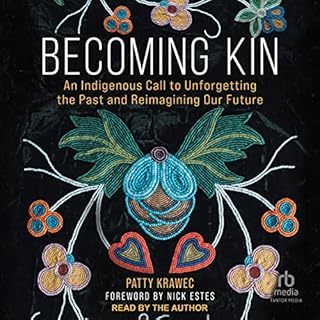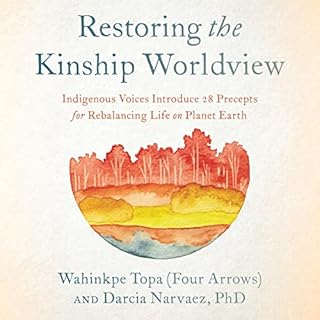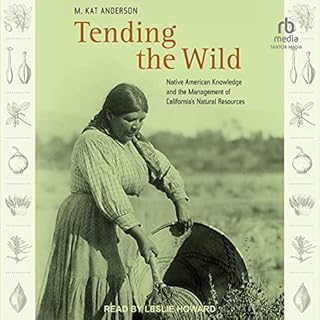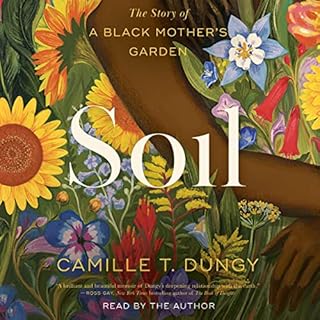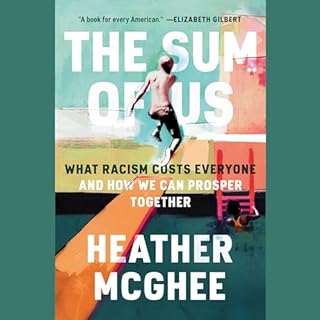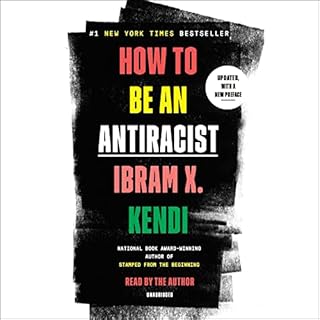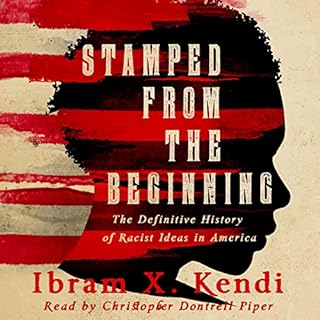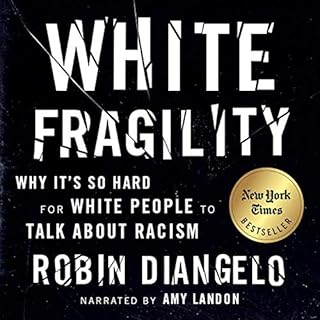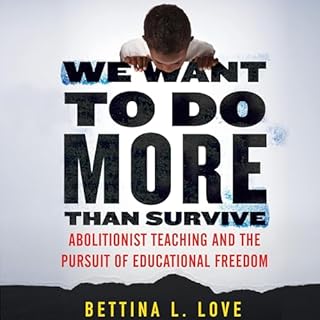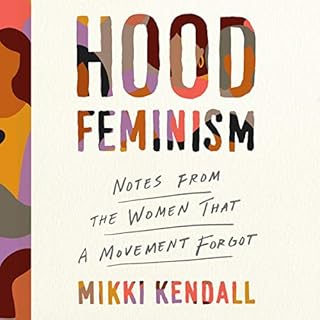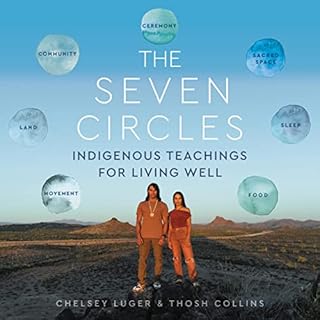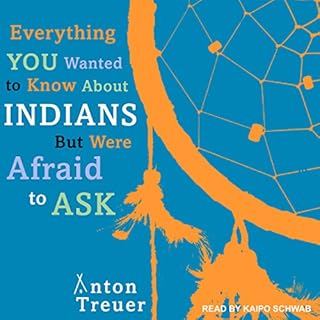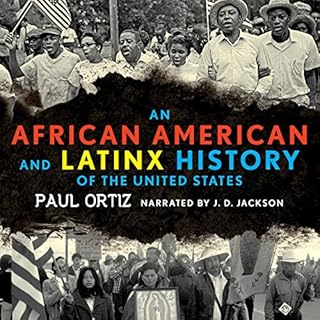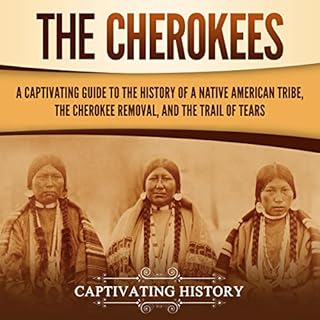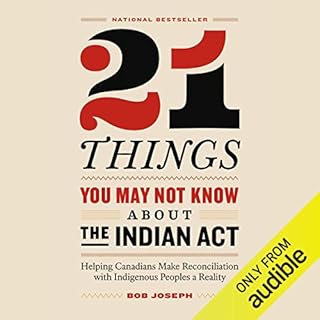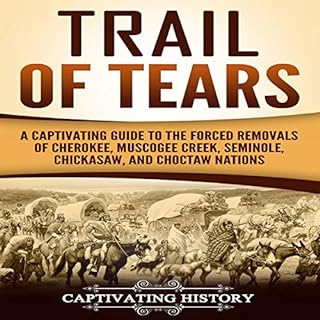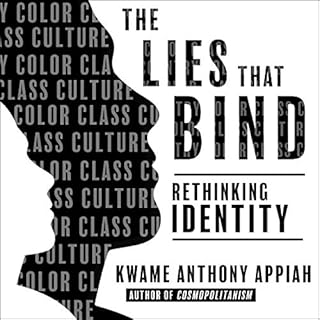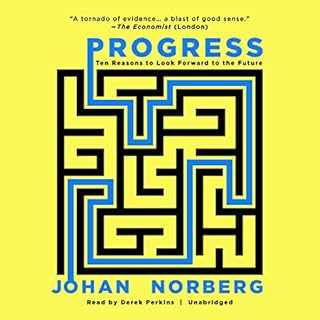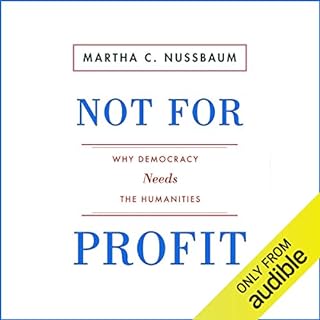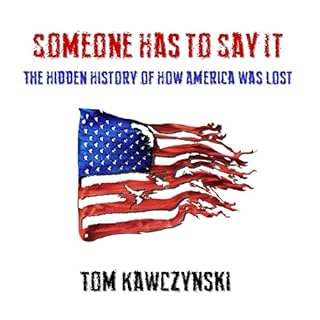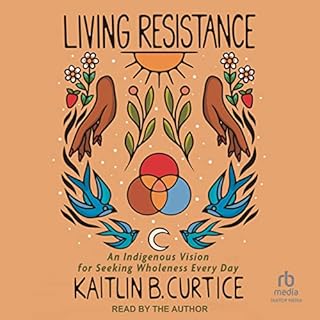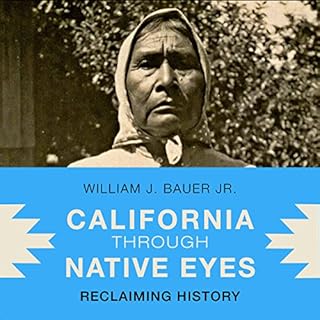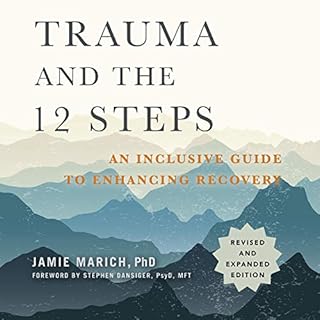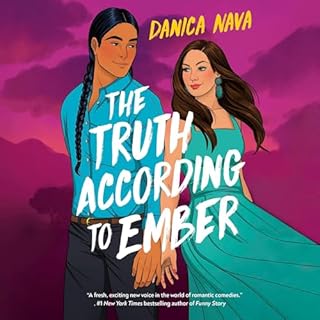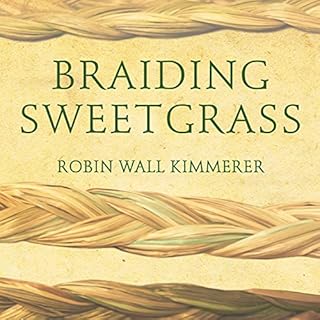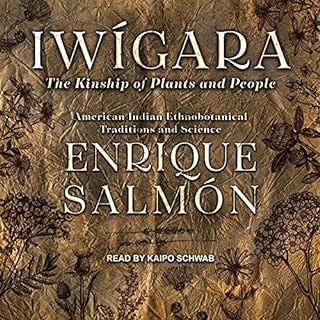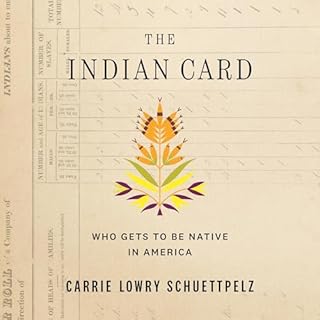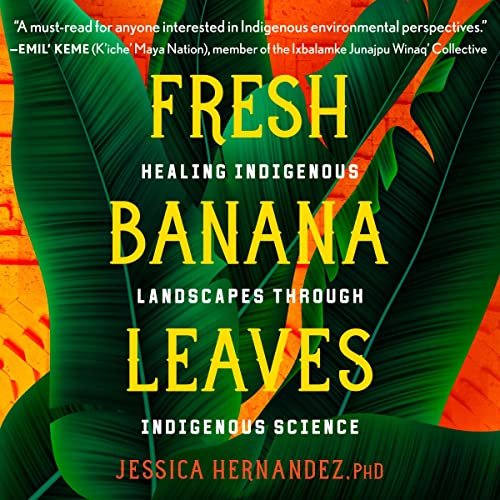
Fresh Banana Leaves
Healing Indigenous Landscapes Through Indigenous Science
Failed to add items
Add to Cart failed.
Add to Wish List failed.
Remove from wishlist failed.
Adding to library failed
Follow podcast failed
Unfollow podcast failed
 Prime members: New to Audible?
Prime members: New to Audible?Get 2 free audiobooks during trial.
Buy for $33.26
No default payment method selected.
We are sorry. We are not allowed to sell this product with the selected payment method
-
Narrated by:
-
Stacy Gonzalez
About this listen
A 2022 Los Angeles Times Book Prize Finalist in Science & Technology
An Indigenous environmental scientist breaks down why western conservationism isn't working--and offers Indigenous models informed by case studies, personal stories, and family histories that center the voices of Latin American women and land protectors.
Despite the undeniable fact that Indigenous communities are among the most affected by climate devastation, Indigenous science is nowhere to be found in mainstream environmental policy or discourse. And while holistic land, water, and forest management practices born from millennia of Indigenous knowledge systems have much to teach all of us, Indigenous science has long been ignored, otherized, or perceived as "soft"--the product of a systematic, centuries-long campaign of racism, colonialism, extractive capitalism, and delegitimization.
Here, Jessica Hernandez--Maya Ch'orti' and Zapotec environmental scientist and founder of environmental agency Piña Soul--introduces and contextualizes Indigenous environmental knowledge and proposes a vision of land stewardship that heals rather than displaces, that generates rather than destroys. She breaks down the failures of western-defined conservatism and shares alternatives, citing the restoration work of urban Indigenous people in Seattle; her family's fight against ecoterrorism in Latin America; and holistic land management approaches of Indigenous groups across the continent.
Through case studies, historical overviews, and stories that center the voices and lived experiences of Indigenous Latin American women and land protectors, Hernandez makes the case that if we're to recover the health of our planet--for everyone--we need to stop the eco-colonialism ravaging Indigenous lands and restore our relationship with Earth to one of harmony and respect.
PLEASE NOTE: When you purchase this title, the accompanying PDF will be available in your Audible Library along with the audio.
©2022 Jessica Hernandez (P)2022 North Atlantic BooksListeners also enjoyed...
-
Becoming Kin
- An Indigenous Call to Unforgetting the Past and Reimagining Our Future
- By: Patty Krawec, Nick Estes - foreword
- Narrated by: Patty Krawec
- Length: 5 hrs and 24 mins
- Unabridged
-
Overall5 out of 5 stars 72
-
Performance5 out of 5 stars 66
-
Story4.5 out of 5 stars 66
The invented history of the Western world is crumbling fast, Anishinaabe writer Patty Krawec says, but we can still honor the bonds between us. Settlers dominated and divided, but Indigenous peoples won't just send them all "home." Weaving her own story with the story of her ancestors and with the broader themes of creation, replacement, and disappearance, Krawec helps listeners see settler colonialism through the eyes of an Indigenous writer.
-
5 out of 5 stars
-
Relearning History
- By Bo Buxton on 02-05-23
By: Patty Krawec, and others
-
As Long as Grass Grows
- The Indigenous Fight for Environmental Justice, from Colonization to Standing Rock
- By: Dina Gilio-Whitaker
- Narrated by: Kyla Garcia
- Length: 7 hrs and 8 mins
- Unabridged
-
Overall5 out of 5 stars 169
-
Performance4.5 out of 5 stars 142
-
Story5 out of 5 stars 141
The story of Native peoples’ resistance to environmental injustice and land incursions and a call for environmentalists to learn from the indigenous community’s rich history of activism.
-
4 out of 5 stars
-
Unbalanced Information
- By J. Scott on 08-30-22
-
The Intersectional Environmentalist
- How to Dismantle Systems of Oppression to Protect People + Planet
- By: Leah Thomas
- Narrated by: Leah Thomas, Hayden Bishop, Erin Walker
- Length: 4 hrs and 1 min
- Unabridged
-
Overall4.5 out of 5 stars 89
-
Performance4.5 out of 5 stars 74
-
Story5 out of 5 stars 73
The Intersectional Environmentalist examines the inextricable link between environmentalism, racism, and privilege and promotes awareness of the fundamental truth that we cannot save the planet without uplifting the voices of its people. Written by Leah Thomas, a prominent voice in the field and the activist who coined the term intersectional environmentalism, this book is simultaneously a call to action, a guide to instigating change for all, and a pledge to work toward the empowerment of all people and the betterment of the planet.
-
4 out of 5 stars
-
Good to cover basics with highschoolers/undergrads
- By Mayra Rodriguez on 03-08-22
By: Leah Thomas
-
Restoring the Kinship Worldview
- Indigenous Voices Introduce 28 Precepts for Rebalancing Life on Planet Earth
- By: Wahinkpe Topa (Four Arrows), Darcia Narváez PhD
- Narrated by: Wahinkpe Topa (Four Arrows), Darcia Narváez PhD, Sage Ryan
- Length: 9 hrs and 22 mins
- Unabridged
-
Overall5 out of 5 stars 41
-
Performance4.5 out of 5 stars 35
-
Story5 out of 5 stars 35
Indigenous worldviews, and the knowledge they confer, are critical for human survival and the wellbeing of future generations. Editors Wahinkpe Topa (Four Arrows) and Darcia Narvaez present 28 powerful excerpted passages from Indigenous leaders, including Mourning Dove, Robin Wall Kimmerer, Winona LaDuke, and Xiuhtezcatl Martinez.
-
5 out of 5 stars
-
Important wisdom to live by!
- By Elizabeth A. Murray on 08-28-24
By: Wahinkpe Topa (Four Arrows), and others
-
All We Can Save
- Truth, Courage, and Solutions for the Climate Crisis
- By: Ayana Elizabeth Johnson, Katharine K. Wilkinson
- Narrated by: Ayana Elizabeth Johnson, Katharine K. Wilkinson, Cristela Alonzo, and others
- Length: 15 hrs and 5 mins
- Unabridged
-
Overall4.5 out of 5 stars 275
-
Performance5 out of 5 stars 228
-
Story4.5 out of 5 stars 228
All We Can Save illuminates the expertise and insights of dozens of diverse women leading on climate in the United States - scientists, journalists, farmers, lawyers, teachers, activists, innovators, wonks, and designers, across generations, geographies, and race - and aims to advance a more representative, nuanced, and solution-oriented public conversation on the climate crisis. These women offer a spectrum of ideas and insights for how we can rapidly, radically reshape society.
-
5 out of 5 stars
-
Saved My Life
- By Taylor Seamount on 11-07-21
By: Ayana Elizabeth Johnson, and others
-
Tending the Wild
- Native American Knowledge and the Management of California’s Natural Resources
- By: M. Kat Anderson
- Narrated by: Leslie Howard
- Length: 16 hrs and 28 mins
- Unabridged
-
Overall5 out of 5 stars 5
-
Performance3.5 out of 5 stars 5
-
Story5 out of 5 stars 5
John Muir was an early proponent of a view we still hold today—that much of California was pristine, untouched wilderness before the arrival of Europeans. But as this book demonstrates, what Muir was really seeing when he admired the grand vistas of Yosemite and the gold and purple flowers carpeting the Central Valley were the fertile gardens of the Sierra Miwok and Valley Yokuts Indians, modified and made productive by centuries of harvesting, tilling, sowing, pruning, and burning.
-
4 out of 5 stars
-
Stand stand the narrator!
- By Virginia on 01-29-24
By: M. Kat Anderson
-
Becoming Kin
- An Indigenous Call to Unforgetting the Past and Reimagining Our Future
- By: Patty Krawec, Nick Estes - foreword
- Narrated by: Patty Krawec
- Length: 5 hrs and 24 mins
- Unabridged
-
Overall5 out of 5 stars 72
-
Performance5 out of 5 stars 66
-
Story4.5 out of 5 stars 66
The invented history of the Western world is crumbling fast, Anishinaabe writer Patty Krawec says, but we can still honor the bonds between us. Settlers dominated and divided, but Indigenous peoples won't just send them all "home." Weaving her own story with the story of her ancestors and with the broader themes of creation, replacement, and disappearance, Krawec helps listeners see settler colonialism through the eyes of an Indigenous writer.
-
5 out of 5 stars
-
Relearning History
- By Bo Buxton on 02-05-23
By: Patty Krawec, and others
-
As Long as Grass Grows
- The Indigenous Fight for Environmental Justice, from Colonization to Standing Rock
- By: Dina Gilio-Whitaker
- Narrated by: Kyla Garcia
- Length: 7 hrs and 8 mins
- Unabridged
-
Overall5 out of 5 stars 169
-
Performance4.5 out of 5 stars 142
-
Story5 out of 5 stars 141
The story of Native peoples’ resistance to environmental injustice and land incursions and a call for environmentalists to learn from the indigenous community’s rich history of activism.
-
4 out of 5 stars
-
Unbalanced Information
- By J. Scott on 08-30-22
-
The Intersectional Environmentalist
- How to Dismantle Systems of Oppression to Protect People + Planet
- By: Leah Thomas
- Narrated by: Leah Thomas, Hayden Bishop, Erin Walker
- Length: 4 hrs and 1 min
- Unabridged
-
Overall4.5 out of 5 stars 89
-
Performance4.5 out of 5 stars 74
-
Story5 out of 5 stars 73
The Intersectional Environmentalist examines the inextricable link between environmentalism, racism, and privilege and promotes awareness of the fundamental truth that we cannot save the planet without uplifting the voices of its people. Written by Leah Thomas, a prominent voice in the field and the activist who coined the term intersectional environmentalism, this book is simultaneously a call to action, a guide to instigating change for all, and a pledge to work toward the empowerment of all people and the betterment of the planet.
-
4 out of 5 stars
-
Good to cover basics with highschoolers/undergrads
- By Mayra Rodriguez on 03-08-22
By: Leah Thomas
-
Restoring the Kinship Worldview
- Indigenous Voices Introduce 28 Precepts for Rebalancing Life on Planet Earth
- By: Wahinkpe Topa (Four Arrows), Darcia Narváez PhD
- Narrated by: Wahinkpe Topa (Four Arrows), Darcia Narváez PhD, Sage Ryan
- Length: 9 hrs and 22 mins
- Unabridged
-
Overall5 out of 5 stars 41
-
Performance4.5 out of 5 stars 35
-
Story5 out of 5 stars 35
Indigenous worldviews, and the knowledge they confer, are critical for human survival and the wellbeing of future generations. Editors Wahinkpe Topa (Four Arrows) and Darcia Narvaez present 28 powerful excerpted passages from Indigenous leaders, including Mourning Dove, Robin Wall Kimmerer, Winona LaDuke, and Xiuhtezcatl Martinez.
-
5 out of 5 stars
-
Important wisdom to live by!
- By Elizabeth A. Murray on 08-28-24
By: Wahinkpe Topa (Four Arrows), and others
-
All We Can Save
- Truth, Courage, and Solutions for the Climate Crisis
- By: Ayana Elizabeth Johnson, Katharine K. Wilkinson
- Narrated by: Ayana Elizabeth Johnson, Katharine K. Wilkinson, Cristela Alonzo, and others
- Length: 15 hrs and 5 mins
- Unabridged
-
Overall4.5 out of 5 stars 275
-
Performance5 out of 5 stars 228
-
Story4.5 out of 5 stars 228
All We Can Save illuminates the expertise and insights of dozens of diverse women leading on climate in the United States - scientists, journalists, farmers, lawyers, teachers, activists, innovators, wonks, and designers, across generations, geographies, and race - and aims to advance a more representative, nuanced, and solution-oriented public conversation on the climate crisis. These women offer a spectrum of ideas and insights for how we can rapidly, radically reshape society.
-
5 out of 5 stars
-
Saved My Life
- By Taylor Seamount on 11-07-21
By: Ayana Elizabeth Johnson, and others
-
Tending the Wild
- Native American Knowledge and the Management of California’s Natural Resources
- By: M. Kat Anderson
- Narrated by: Leslie Howard
- Length: 16 hrs and 28 mins
- Unabridged
-
Overall5 out of 5 stars 5
-
Performance3.5 out of 5 stars 5
-
Story5 out of 5 stars 5
John Muir was an early proponent of a view we still hold today—that much of California was pristine, untouched wilderness before the arrival of Europeans. But as this book demonstrates, what Muir was really seeing when he admired the grand vistas of Yosemite and the gold and purple flowers carpeting the Central Valley were the fertile gardens of the Sierra Miwok and Valley Yokuts Indians, modified and made productive by centuries of harvesting, tilling, sowing, pruning, and burning.
-
4 out of 5 stars
-
Stand stand the narrator!
- By Virginia on 01-29-24
By: M. Kat Anderson
-
Crossings
- How Road Ecology Is Shaping the Future of Our Planet
- By: Ben Goldfarb
- Narrated by: Malcolm Hillgartner
- Length: 11 hrs and 52 mins
- Unabridged
-
Overall4.5 out of 5 stars 73
-
Performance4.5 out of 5 stars 63
-
Story4.5 out of 5 stars 63
Some 40 million miles of roadways encircle the earth, yet we tend to regard them only as infrastructure for human convenience. While roads are so ubiquitous they're practically invisible to us, wild animals experience them as entirely alien forces of death and disruption. In Crossings, environmental journalist Ben Goldfarb travels throughout the United States and around the world to investigate how roads have transformed our planet. A million animals are killed by cars each day in the US alone, but as the new science of road ecology shows, the harms of highways extend far beyond roadkill.
-
4 out of 5 stars
-
Great book, but narration doesn’t fit.
- By Anonymous User on 09-22-23
By: Ben Goldfarb
-
Sacred Instructions
- Indigenous Wisdom for Living Spirit-Based Change
- By: Sherri Mitchell, Larry Dossey M.D.
- Narrated by: Sherri Mitchell
- Length: 7 hrs and 37 mins
- Unabridged
-
Overall5 out of 5 stars 273
-
Performance4.5 out of 5 stars 237
-
Story5 out of 5 stars 234
Drawing from ancestral knowledge, as well as her experience as an attorney and activist, Sherri Mitchell addresses some of the most crucial issues of our day—including indigenous land rights, environmental justice, and our collective human survival. Sharing the gifts she has received from the elders of her tribe, the Penobscot Nation, she asks us to look deeply into the illusions we have labeled as truth and which separate us from our higher mind and from one another.
-
5 out of 5 stars
-
Much needed wisdom clearly shared
- By Eileen Flanagan on 02-20-20
By: Sherri Mitchell, and others
-
Soil
- The Story of a Black Mother's Garden
- By: Camille T. Dungy
- Narrated by: Camille T. Dungy
- Length: 10 hrs and 16 mins
- Unabridged
-
Overall4.5 out of 5 stars 55
-
Performance4.5 out of 5 stars 52
-
Story4.5 out of 5 stars 52
In Soil: The Story of a Black Mother’s Garden poet and scholar Camille T. Dungy recounts the seven-year odyssey to diversify her garden in the predominantly white community of Fort Collins, Colorado. When she moved there in 2013, with her husband and daughter, the community held strict restrictions about what residents could and could not plant in their gardens.
-
5 out of 5 stars
-
Like medicine...
- By Broderek on 06-17-23
By: Camille T. Dungy
-
Caste
- The Origins of Our Discontents
- By: Isabel Wilkerson
- Narrated by: Robin Miles
- Length: 15 hrs and 10 mins
- Unabridged
-
Overall5 out of 5 stars 20,746
-
Performance5 out of 5 stars 18,026
-
Story5 out of 5 stars 17,892
In this brilliant book, Isabel Wilkerson gives us a masterful portrait of an unseen phenomenon in America as she explores, through an immersive, deeply researched narrative and stories about real people, how America today and throughout its history has been shaped by a hidden caste system, a rigid hierarchy of human rankings. Beautifully written, original, and revealing, Caste: The Origins of Our Discontents is an eye-opening story of people and history, and a reexamination of what lies under the surface of ordinary lives and of American life today.
-
5 out of 5 stars
-
Brilliant, articulate, highly listenable.
- By GM on 08-05-20
By: Isabel Wilkerson
-
The Sum of Us
- What Racism Costs Everyone and How We Can Prosper Together
- By: Heather McGhee
- Narrated by: Heather McGhee
- Length: 11 hrs and 8 mins
- Unabridged
-
Overall5 out of 5 stars 3,751
-
Performance5 out of 5 stars 3,291
-
Story5 out of 5 stars 3,262
Heather McGhee’s specialty is the American economy—and the mystery of why it so often fails the American public. From the financial crisis of 2008 to rising student debt to collapsing public infrastructure, she found a root problem: racism in our politics and policymaking. But not just in the most obvious indignities for people of color. Racism has costs for white people, too. It is the common denominator of our most vexing public problems, the core dysfunction of our democracy and constitutive of the spiritual and moral crises that grip us all.
-
4 out of 5 stars
-
Good book but Recording tech is poor. Glitches
- By Jeannepup on 02-25-21
By: Heather McGhee
-
Uncomfortable Conversations with a Black Man
- By: Emmanuel Acho
- Narrated by: Emmanuel Acho
- Length: 4 hrs and 26 mins
- Unabridged
-
Overall5 out of 5 stars 2,432
-
Performance5 out of 5 stars 2,123
-
Story5 out of 5 stars 2,111
“You cannot fix a problem you do not know you have.” So begins Emmanuel Acho in his essential guide to the truths Americans need to know to address the systemic racism that has recently electrified protests in all fifty states. In Uncomfortable Conversations With a Black Man, Acho takes on all the questions, large and small, insensitive and taboo, many white Americans are afraid to ask—yet which all Americans need the answers to, now more than ever.
-
5 out of 5 stars
-
Enlightening!
- By Kiley on 11-11-20
By: Emmanuel Acho
-
How to Be an Antiracist
- By: Ibram X. Kendi
- Narrated by: Ibram X. Kendi
- Length: 10 hrs and 29 mins
- Unabridged
-
Overall4.5 out of 5 stars 13,639
-
Performance4.5 out of 5 stars 11,674
-
Story5 out of 5 stars 11,553
From the National Book Award-winning author of Stamped from the Beginning comes a “groundbreaking” (Time) approach to understanding and uprooting racism and inequality in our society and in ourselves—now updated, with a new preface.
-
3 out of 5 stars
-
80% of the useful content is in the first 1-2 chapters
- By Anonymous User on 03-09-20
By: Ibram X. Kendi
-
Stamped from the Beginning
- The Definitive History of Racist Ideas in America
- By: Ibram X. Kendi
- Narrated by: Christopher Dontrell Piper
- Length: 19 hrs and 8 mins
- Unabridged
-
Overall5 out of 5 stars 4,101
-
Performance4.5 out of 5 stars 3,584
-
Story5 out of 5 stars 3,552
Some Americans cling desperately to the myth that we are living in a post-racial society, that the election of the first Black president spelled the doom of racism. In fact, racist thought is alive and well in America - more sophisticated and more insidious than ever. And as award-winning historian Ibram X. Kendi argues in Stamped from the Beginning, if we have any hope of grappling with this stark reality, we must first understand how racist ideas were developed, disseminated, and enshrined in American society.
-
4 out of 5 stars
-
Fabulous book, poor reader
- By EBMason on 11-15-17
By: Ibram X. Kendi
-
White Fragility
- Why It's So Hard for White People to Talk About Racism
- By: Dr. Robin DiAngelo, Michael Eric Dyson - foreword
- Narrated by: Amy Landon
- Length: 6 hrs and 21 mins
- Unabridged
-
Overall4.5 out of 5 stars 22,069
-
Performance4.5 out of 5 stars 18,488
-
Story4.5 out of 5 stars 18,258
In this “vital, necessary, and beautiful book” (Michael Eric Dyson), antiracist educator Robin DiAngelo deftly illuminates the phenomenon of white fragility and “allows us to understand racism as a practice not restricted to 'bad people'" (Claudia Rankine). Referring to the defensive moves white people make when challenged racially, white fragility is characterized by emotions such as anger, fear, and guilt and by behaviors including argumentation and silence. These behaviors, in turn, function to reinstate white racial equilibrium and prevent meaningful cross-racial dialogue.
-
1 out of 5 stars
-
Word salad
- By Eric on 03-10-20
By: Dr. Robin DiAngelo, and others
-
We Want to Do More Than Survive
- Abolitionist Teaching and the Pursuit of Educational Freedom
- By: Bettina Love
- Narrated by: Misty Monroe
- Length: 7 hrs and 48 mins
- Unabridged
-
Overall5 out of 5 stars 824
-
Performance5 out of 5 stars 708
-
Story5 out of 5 stars 699
Drawing on her life’s work, Bettina Love persuasively argues that educators must teach students about racial violence, oppression, and how to make sustainable change in their communities through radical civic initiatives and movements. She argues that the US educational system is maintained by and profits from the suffering of children of color. Instead of trying to repair a flawed system, educational reformers offer survival tactics in the forms of test-taking skills, acronyms, grit labs, and character education, which Love calls the educational survival complex.
-
5 out of 5 stars
-
Must read for all parents and educators
- By loving purple on 08-17-20
By: Bettina Love
-
Hood Feminism
- Notes from the Women that a Movement Forgot
- By: Mikki Kendall
- Narrated by: Mikki Kendall
- Length: 6 hrs and 57 mins
- Unabridged
-
Overall5 out of 5 stars 2,876
-
Performance4.5 out of 5 stars 2,448
-
Story5 out of 5 stars 2,434
Today's feminist movement has a glaring blind spot, and paradoxically, it is women. Mainstream feminists rarely talk about meeting basic needs as a feminist issue, argues Mikki Kendall, but food insecurity, access to quality education, safe neighborhoods, a living wage, and medical care are all feminist issues. All too often, however, the focus is not on basic survival for the many, but on increasing privilege for the few. Author Mikki Kendall takes aim at the legitimacy of the modern feminist movement arguing that it has chronically failed to address the needs of all but a few women.
-
5 out of 5 stars
-
I Learned So Much!!!
- By Rebecca on 06-13-20
By: Mikki Kendall
-
The Seven Circles
- Indigenous Teachings for Living Well
- By: Chelsey Luger, Thosh Collins
- Narrated by: Chelsey Luger
- Length: 7 hrs and 58 mins
- Unabridged
-
Overall5 out of 5 stars 71
-
Performance5 out of 5 stars 66
-
Story5 out of 5 stars 66
When wellness teachers and husband-wife duo Chelsey Luger and Thosh Collins founded their Indigenous wellness initiative, Well for Culture, they extended an invitation to all to honor their whole self through Native wellness philosophies and practices. In reclaiming this ancient wisdom for health and wellbeing—drawing from traditions spanning multiple tribes—they developed the Seven Circles, a holistic model for modern living rooted in timeless teachings from their ancestors.
-
5 out of 5 stars
-
AMAZING!!!
- By Amazon Customer on 01-28-23
By: Chelsey Luger, and others
Critic reviews
"Westerners, [Dr. Hernandez] writes, fall short on including Indigenous people in environmental dialogues and deny them the social and economic resources necessary to recover from 'land theft, cultural loss, and genocide' and to prepare for the future effects of climate change." (Publishers Weekly)
“In Fresh Banana Leaves, Jessica Hernandez weaves personal, historical, and environmental narratives to offer us a passionate and powerful call to increase our awareness and to take responsibility for caring for Mother Earth.” A must-read for anyone interested in Indigenous environmental perspectives.” (Emil’ Keme, K’iche’Maya Nation, member of the Ixbalamke Junajpu Winaq’ Collective)
“A groundbreaking book that busts existing frameworks about how we think about Indigeneity, science, and environmental policy. A must-read for practitioners and theorists alike.” (Sandy Grande, professor of political science and Native American and Indigenous studies, University of Connecticut)
Related to this topic
-
As Long as Grass Grows
- The Indigenous Fight for Environmental Justice, from Colonization to Standing Rock
- By: Dina Gilio-Whitaker
- Narrated by: Kyla Garcia
- Length: 7 hrs and 8 mins
- Unabridged
-
Overall5 out of 5 stars 169
-
Performance4.5 out of 5 stars 142
-
Story5 out of 5 stars 141
The story of Native peoples’ resistance to environmental injustice and land incursions and a call for environmentalists to learn from the indigenous community’s rich history of activism.
-
4 out of 5 stars
-
Unbalanced Information
- By J. Scott on 08-30-22
-
Everything You Wanted to Know about Indians but Were Afraid to Ask
- By: Anton Treuer
- Narrated by: Kaipo Schwab
- Length: 5 hrs and 1 min
- Unabridged
-
Overall5 out of 5 stars 200
-
Performance5 out of 5 stars 178
-
Story5 out of 5 stars 174
What have you always wanted to know about Indians? Do you think you should already know the answers-or suspect that your questions may be offensive? In matter-of-fact responses to over 120 questions, both thoughtful and outrageous, modern and historical, Ojibwe scholar and cultural preservationist Anton Treuer gives a frank, funny, and sometimes personal tour of what's up with Indians, anyway.
-
5 out of 5 stars
-
one of the better books
- By Erica Kerr on 07-14-18
By: Anton Treuer
-
We Rise
- The Earth Guardians Guide to Building a Movement That Restores the Planet
- By: Xiuhtezcatl Martinez
- Narrated by: Drew Caiden
- Length: 9 hrs and 11 mins
- Unabridged
-
Overall4.5 out of 5 stars 31
-
Performance4 out of 5 stars 28
-
Story4.5 out of 5 stars 27
Sixteen-year-old climate activist Xiuhtezcatl Martinez and his group the Earth Guardians believe that choices made now will have a lasting impact on the world of tomorrow, and they want to ensure a positive, just, and sustainable future. Beginning with their empowering story, We Rise explores many aspects of effective activism and provides step-by-step information on how to start and join solution-oriented movements.
-
5 out of 5 stars
-
great topic good info
- By Great and powerful IDE on 10-01-17
-
An African American and Latinx History of the United States
- By: Paul Ortiz
- Narrated by: J. D. Jackson
- Length: 9 hrs and 4 mins
- Unabridged
-
Overall4.5 out of 5 stars 457
-
Performance4.5 out of 5 stars 402
-
Story5 out of 5 stars 397
Spanning more than 200 years, An African American and Latinx History of the United States is a revolutionary, politically charged narrative history arguing that the "Global South" was crucial to the development of America as we know it. Ortiz challenges the notion of westward progress, and shows how placing African American, Latinx, and Indigenous voices unapologetically front and center transforms American history into the story of the working class organizing against imperialism.
-
2 out of 5 stars
-
I had to return
- By Andrew Alvarez on 05-19-20
By: Paul Ortiz
-
The Cherokees
- A Captivating Guide to the History of a Native American Tribe, the Cherokee Removal, and the Trail of Tears
- By: Captivating History
- Narrated by: Jay Herbert
- Length: 3 hrs and 20 mins
- Unabridged
-
Overall4.5 out of 5 stars 38
-
Performance4.5 out of 5 stars 36
-
Story5 out of 5 stars 36
The Cherokee were the first Native American tribe to develop a syllabic written language. They were also the first Native American tribe to have a written constitution and the first Native American tribe to have a newspaper. And the list goes on and on. The Cherokee are one of the most fascinating Indigenous tribes in the United States of America. The Cherokee managed to assimilate themselves within the US. And yet, they were sent far across the country, exiled from their ancestral homelands. What happened on their journey during the Trail of Tears?
-
5 out of 5 stars
-
Well Read and emphasized!
- By Anonymous User on 09-17-24
-
21 Things You May Not Know About the Indian Act
- Helping Canadians Make Reconciliation with Indigenous Peoples a Reality
- By: Bob Joseph
- Narrated by: Sage Isaac
- Length: 3 hrs and 38 mins
- Unabridged
-
Overall5 out of 5 stars 43
-
Performance4.5 out of 5 stars 39
-
Story5 out of 5 stars 39
Based on a viral article, 21 Things You May Not Know About the Indian Act is the essential guide to understanding the Canadian legal document and its repercussion on generations of Indigenous peoples, written by a leading cultural sensitivity trainer. The Indian Act, after 141 years, continues to shape, control, and constrain the lives and opportunities of Indigenous peoples, and is at the root of many lasting stereotypes.
-
5 out of 5 stars
-
💙🪶
- By Anonymous User on 01-17-23
By: Bob Joseph
-
As Long as Grass Grows
- The Indigenous Fight for Environmental Justice, from Colonization to Standing Rock
- By: Dina Gilio-Whitaker
- Narrated by: Kyla Garcia
- Length: 7 hrs and 8 mins
- Unabridged
-
Overall5 out of 5 stars 169
-
Performance4.5 out of 5 stars 142
-
Story5 out of 5 stars 141
The story of Native peoples’ resistance to environmental injustice and land incursions and a call for environmentalists to learn from the indigenous community’s rich history of activism.
-
4 out of 5 stars
-
Unbalanced Information
- By J. Scott on 08-30-22
-
Everything You Wanted to Know about Indians but Were Afraid to Ask
- By: Anton Treuer
- Narrated by: Kaipo Schwab
- Length: 5 hrs and 1 min
- Unabridged
-
Overall5 out of 5 stars 200
-
Performance5 out of 5 stars 178
-
Story5 out of 5 stars 174
What have you always wanted to know about Indians? Do you think you should already know the answers-or suspect that your questions may be offensive? In matter-of-fact responses to over 120 questions, both thoughtful and outrageous, modern and historical, Ojibwe scholar and cultural preservationist Anton Treuer gives a frank, funny, and sometimes personal tour of what's up with Indians, anyway.
-
5 out of 5 stars
-
one of the better books
- By Erica Kerr on 07-14-18
By: Anton Treuer
-
We Rise
- The Earth Guardians Guide to Building a Movement That Restores the Planet
- By: Xiuhtezcatl Martinez
- Narrated by: Drew Caiden
- Length: 9 hrs and 11 mins
- Unabridged
-
Overall4.5 out of 5 stars 31
-
Performance4 out of 5 stars 28
-
Story4.5 out of 5 stars 27
Sixteen-year-old climate activist Xiuhtezcatl Martinez and his group the Earth Guardians believe that choices made now will have a lasting impact on the world of tomorrow, and they want to ensure a positive, just, and sustainable future. Beginning with their empowering story, We Rise explores many aspects of effective activism and provides step-by-step information on how to start and join solution-oriented movements.
-
5 out of 5 stars
-
great topic good info
- By Great and powerful IDE on 10-01-17
-
An African American and Latinx History of the United States
- By: Paul Ortiz
- Narrated by: J. D. Jackson
- Length: 9 hrs and 4 mins
- Unabridged
-
Overall4.5 out of 5 stars 457
-
Performance4.5 out of 5 stars 402
-
Story5 out of 5 stars 397
Spanning more than 200 years, An African American and Latinx History of the United States is a revolutionary, politically charged narrative history arguing that the "Global South" was crucial to the development of America as we know it. Ortiz challenges the notion of westward progress, and shows how placing African American, Latinx, and Indigenous voices unapologetically front and center transforms American history into the story of the working class organizing against imperialism.
-
2 out of 5 stars
-
I had to return
- By Andrew Alvarez on 05-19-20
By: Paul Ortiz
-
The Cherokees
- A Captivating Guide to the History of a Native American Tribe, the Cherokee Removal, and the Trail of Tears
- By: Captivating History
- Narrated by: Jay Herbert
- Length: 3 hrs and 20 mins
- Unabridged
-
Overall4.5 out of 5 stars 38
-
Performance4.5 out of 5 stars 36
-
Story5 out of 5 stars 36
The Cherokee were the first Native American tribe to develop a syllabic written language. They were also the first Native American tribe to have a written constitution and the first Native American tribe to have a newspaper. And the list goes on and on. The Cherokee are one of the most fascinating Indigenous tribes in the United States of America. The Cherokee managed to assimilate themselves within the US. And yet, they were sent far across the country, exiled from their ancestral homelands. What happened on their journey during the Trail of Tears?
-
5 out of 5 stars
-
Well Read and emphasized!
- By Anonymous User on 09-17-24
-
21 Things You May Not Know About the Indian Act
- Helping Canadians Make Reconciliation with Indigenous Peoples a Reality
- By: Bob Joseph
- Narrated by: Sage Isaac
- Length: 3 hrs and 38 mins
- Unabridged
-
Overall5 out of 5 stars 43
-
Performance4.5 out of 5 stars 39
-
Story5 out of 5 stars 39
Based on a viral article, 21 Things You May Not Know About the Indian Act is the essential guide to understanding the Canadian legal document and its repercussion on generations of Indigenous peoples, written by a leading cultural sensitivity trainer. The Indian Act, after 141 years, continues to shape, control, and constrain the lives and opportunities of Indigenous peoples, and is at the root of many lasting stereotypes.
-
5 out of 5 stars
-
💙🪶
- By Anonymous User on 01-17-23
By: Bob Joseph
-
Harmony
- A New Way of Looking at Our World
- By: Charles HRH The Prince of Wales
- Narrated by: Charles HRH The Prince of Wales
- Length: 11 hrs and 21 mins
- Unabridged
-
Overall4.5 out of 5 stars 97
-
Performance4.5 out of 5 stars 76
-
Story4.5 out of 5 stars 76
For the first time, HRH The Prince of Wales shares his views on how our most pressing modern challenges - from climate change to poverty - are rooted in mankind's disharmony with nature, presenting a compelling case that the solution lies in our ability to regain a balance with the world around us. With its holistic approach, this provocative and well-reasoned book takes the discussion of sustainability and climate change in a new direction.
-
5 out of 5 stars
-
An Excellent Exploration
- By Sara on 03-31-16
-
Rwanda, Inc.
- How a Devastated Nation Became an Economic Model for the Developing World
- By: Patricia Crisafulli, Andrea Redmond
- Narrated by: Hillary Huber
- Length: 7 hrs and 19 mins
- Unabridged
-
Overall4 out of 5 stars 109
-
Performance4 out of 5 stars 85
-
Story4 out of 5 stars 85
Eighteen years after the genocide that made Rwanda international news, yet left it all but abandoned by the West, the country has achieved a miraculous turnaround. Rising out of the complete devastation of a failed state, Rwanda has emerged on the world stage yet again - this time with a unique model for governance and economic development under the leadership of its strong and decisive president, Paul Kagame. Here, Patricia Crisafulli and Andrea Redmond look at Kagame’s leadership.
-
2 out of 5 stars
-
Paul Kagame is a dictator, not a savior.
- By Amazon Customer on 05-21-21
By: Patricia Crisafulli, and others
-
Trail of Tears
- A Captivating Guide to the Forced Removals of Cherokee, Muscogee Creek, Seminole, Chickasaw, and Choctaw Nations
- By: Captivating History
- Narrated by: Duke Holm
- Length: 1 hr and 46 mins
- Unabridged
-
Overall4.5 out of 5 stars 83
-
Performance4.5 out of 5 stars 74
-
Story4.5 out of 5 stars 72
One of the darkest and cruelest chapters in the history of the United States occurred when the nation’s young government decided to remove the native peoples from their lands in the name of profit. Having helped settlers for hundreds of years, five Native American tribes found it increasingly more difficult to relate to, and trust, the country that had once acted as their allies. The native peoples had fought alongside the Americans to gain freedom from England, the nation that the colonists deemed oppressive and unfair.
-
2 out of 5 stars
-
Opinions, not unwarranted, overwhelming
- By Zinjanthropus on 06-09-19
-
Identity
- The Demand for Dignity and the Politics of Resentment
- By: Francis Fukuyama
- Narrated by: P. J. Ochlan
- Length: 6 hrs and 35 mins
- Unabridged
-
Overall4.5 out of 5 stars 756
-
Performance4 out of 5 stars 644
-
Story4.5 out of 5 stars 632
In 2014, Francis Fukuyama wrote that American institutions were in decay, as the state was progressively captured by powerful interest groups. Two years later, his predictions were borne out by the rise to power of a series of political outsiders whose economic nationalism and authoritarian tendencies threatened to destabilize the entire international order. These populist nationalists seek direct charismatic connection to “the people”, who are usually defined in narrow identity terms that offer an irresistible call to an in-group and exclude large parts of the population as a whole.
-
5 out of 5 stars
-
Robotic narrator
- By Shahin on 09-19-18
By: Francis Fukuyama
-
Ghetto
- The Invention of a Place, the History of an Idea
- By: Mitchell Duneier
- Narrated by: Prentice Onayemi
- Length: 10 hrs and 8 mins
- Unabridged
-
Overall4.5 out of 5 stars 150
-
Performance4.5 out of 5 stars 129
-
Story4.5 out of 5 stars 126
On March 29, 1516, the city council of Venice issued a decree forcing Jews to live in il geto - a closed quarter named for the copper foundry that once occupied the area. The term stuck. In this sweeping and original interpretation, Mitchell Duneier traces the idea of the ghetto from its beginnings in the 16th century and its revival by the Nazis to the present. As Duneier shows, we cannot understand the entanglements of race, poverty, and place in America today without recalling the history of the ghetto in Europe, as well as later efforts to understand the problems of the American city.
-
4 out of 5 stars
-
Impressive
- By Jean on 12-10-16
By: Mitchell Duneier
-
America's Real War
- By: Rabbi Daniel Lapin
- Narrated by: Rabbi Daniel Lapin
- Length: 3 hrs and 39 mins
- Abridged
-
Overall5 out of 5 stars 64
-
Performance4.5 out of 5 stars 55
-
Story5 out of 5 stars 54
There is a tug of war going on for the future of America. At one end of the rope are those who think America is a secular nation; at the other end are those who believe religion is at the root of our country's foundation. In this audio release of the thought-provoking America's Real War, renowned leader and speaker Rabbi Daniel Lapin encourages America to reembrace the Judeo-Christian values on which our nation was founded and logically demonstrates why those values are crucial to America's strength in the new millennium.
-
5 out of 5 stars
-
I really enjoyed the thoughts and information.
- By Anonymous User on 05-28-19
-
The Lies That Bind
- Rethinking Identity
- By: Kwame Anthony Appiah
- Narrated by: Kwame Anthony Appiah
- Length: 7 hrs and 18 mins
- Unabridged
-
Overall4.5 out of 5 stars 196
-
Performance4.5 out of 5 stars 166
-
Story4.5 out of 5 stars 166
We all know how identities - notably, those of nationality, class, culture, race, and religion - are at the root of global conflict, but the more elusive truth is that these identities are created by conflict in the first place. In provocative, entertaining chapters, Kwame Anthony Appiah interweaves keen-edged argument with engrossing historical tales and reveals the tangled contradictions within the stories that define us.
-
5 out of 5 stars
-
Not full of SJW nonsense
- By Frank on 10-22-18
-
Progress
- Ten Reasons to Look Forward to the Future
- By: Johan Norberg
- Narrated by: Derek Perkins
- Length: 6 hrs and 57 mins
- Unabridged
-
Overall4.5 out of 5 stars 253
-
Performance4.5 out of 5 stars 211
-
Story4.5 out of 5 stars 211
It's on the television, in the papers, and in our minds. Every day we're bludgeoned by news of how bad everything is - financial collapse, unemployment, growing poverty, environmental disasters, disease, hunger, war. But the rarely acknowledged reality is that our progress over the past few decades has been unprecedented. By almost any index you care to identify, things are markedly better now than they have ever been for almost everyone alive.
-
4 out of 5 stars
-
Global Uptrends That May Surprise You
- By Alexandra Hopkins on 09-22-17
By: Johan Norberg
-
Not for Profit
- Why Democracy Needs the Humanities
- By: Martha C. Nussbaum
- Narrated by: Tamara Marston
- Length: 5 hrs and 20 mins
- Unabridged
-
Overall4.5 out of 5 stars 45
-
Performance4.5 out of 5 stars 38
-
Story5 out of 5 stars 36
In this short and powerful book, celebrated philosopher Martha Nussbaum makes a passionate case for the importance of the liberal arts at all levels of education. Historically, the humanities have been central to education because they have been seen as essential for creating competent democratic citizens. But recently, Nussbaum argues, thinking about the aims of education has gone disturbingly awry in the United States and abroad.
-
5 out of 5 stars
-
Not for Profit
- By elemarteacher on 07-21-17
-
Let's Move On
- Beyond Fear & False Prophets
- By: Vicente Fox, Sulay Hernandez-Elhussein
- Narrated by: Thom Rivera
- Length: 4 hrs and 53 mins
- Unabridged
-
Overall4.5 out of 5 stars 25
-
Performance4.5 out of 5 stars 24
-
Story4.5 out of 5 stars 24
Vicente Fox offers his unique viewpoint as a former head of state, avid historian, and true admirer of America’s constitutional ideals. He knows where a Trump presidency can lead—and it is nowhere good. Let’s Move On is a political manifesto written in Fox’s trademark, no-nonsense style where he both denounces Trump’s malignant anti-intellectualism and inspires people to rise up and resist.
-
5 out of 5 stars
-
Inspirational, honest and thought provoking
- By Cristina on 06-18-23
By: Vicente Fox, and others
-
Someone Has to Say It
- The Hidden History of How America Was Lost
- By: Tom Kawczynski
- Narrated by: Jeff Winston
- Length: 5 hrs and 38 mins
- Unabridged
-
Overall4.5 out of 5 stars 59
-
Performance4.5 out of 5 stars 53
-
Story4.5 out of 5 stars 53
Starting at the turn of the last century, this book lays out systematically how Americans have lost control of our government, of our civil society, of our schools, of our companies, and in many cases, even our families.
-
5 out of 5 stars
-
Great and inspiring book
- By K. E. Davila on 07-09-20
By: Tom Kawczynski
-
How Soon Is Now
- From Personal Initiation to Global Transformation
- By: Daniel Pinchbeck
- Narrated by: Nathan Osgood
- Length: 11 hrs and 45 mins
- Unabridged
-
Overall4.5 out of 5 stars 25
-
Performance4.5 out of 5 stars 24
-
Story5 out of 5 stars 23
The world needs to change. We have unleashed an ecological mega-crisis which is threatening the future of life on Earth. The actions we take over the next decade are critical. They will determine the destiny of our descendants and the fate of our world. How Soon Is Now presents a compelling manifesto for personal and planetary change. It proposes a revolutionary new narrative for a unified social movement. Through global cooperation, we can face this collective threat ecologically, socially, politically and spiritually.
-
4 out of 5 stars
-
Relevant!!!!
- By Anonymous User on 12-11-23
By: Daniel Pinchbeck
People who viewed this also viewed...
-
Living Resistance
- An Indigenous Vision for Seeking Wholeness Every Day
- By: Kaitlin B. Curtice
- Narrated by: Kaitlin B. Curtice
- Length: 5 hrs and 17 mins
- Unabridged
-
Overall4.5 out of 5 stars 38
-
Performance5 out of 5 stars 34
-
Story4.5 out of 5 stars 34
In an era in which "resistance" has become tokenized, popular Indigenous author Kaitlin Curtice reclaims it as a basic human calling. Resistance is for every human who longs to see their neighbors' holistic flourishing. We each have a role to play in the world right where we are, and our everyday acts of resistance hold us all together.
-
5 out of 5 stars
-
How is she always this good?!
- By MJ on 03-08-23
-
Becoming Kin
- An Indigenous Call to Unforgetting the Past and Reimagining Our Future
- By: Patty Krawec, Nick Estes - foreword
- Narrated by: Patty Krawec
- Length: 5 hrs and 24 mins
- Unabridged
-
Overall5 out of 5 stars 72
-
Performance5 out of 5 stars 66
-
Story4.5 out of 5 stars 66
The invented history of the Western world is crumbling fast, Anishinaabe writer Patty Krawec says, but we can still honor the bonds between us. Settlers dominated and divided, but Indigenous peoples won't just send them all "home." Weaving her own story with the story of her ancestors and with the broader themes of creation, replacement, and disappearance, Krawec helps listeners see settler colonialism through the eyes of an Indigenous writer.
-
5 out of 5 stars
-
Relearning History
- By Bo Buxton on 02-05-23
By: Patty Krawec, and others
-
Sacred Economics
- Money, Gift, and Society in the Age of Transition
- By: Charles Eisenstein
- Narrated by: Steve Wojtas
- Length: 15 hrs and 5 mins
- Unabridged
-
Overall4.5 out of 5 stars 235
-
Performance4.5 out of 5 stars 189
-
Story4.5 out of 5 stars 193
Sacred Economics traces the history of money from ancient gift economies to modern capitalism, revealing how the money system has contributed to alienation, competition, and scarcity; destroyed community; and necessitated endless growth. Today, these trends have reached their extreme - but in the wake of their collapse, we may find great opportunity to transition to a more connected, ecological, and sustainable way of being.
-
5 out of 5 stars
-
Mind Blown
- By Christian Dockstader on 02-06-20
-
The Seven Circles
- Indigenous Teachings for Living Well
- By: Chelsey Luger, Thosh Collins
- Narrated by: Chelsey Luger
- Length: 7 hrs and 58 mins
- Unabridged
-
Overall5 out of 5 stars 71
-
Performance5 out of 5 stars 66
-
Story5 out of 5 stars 66
When wellness teachers and husband-wife duo Chelsey Luger and Thosh Collins founded their Indigenous wellness initiative, Well for Culture, they extended an invitation to all to honor their whole self through Native wellness philosophies and practices. In reclaiming this ancient wisdom for health and wellbeing—drawing from traditions spanning multiple tribes—they developed the Seven Circles, a holistic model for modern living rooted in timeless teachings from their ancestors.
-
5 out of 5 stars
-
AMAZING!!!
- By Amazon Customer on 01-28-23
By: Chelsey Luger, and others
-
The Intersectional Environmentalist
- How to Dismantle Systems of Oppression to Protect People + Planet
- By: Leah Thomas
- Narrated by: Leah Thomas, Hayden Bishop, Erin Walker
- Length: 4 hrs and 1 min
- Unabridged
-
Overall4.5 out of 5 stars 89
-
Performance4.5 out of 5 stars 74
-
Story5 out of 5 stars 73
The Intersectional Environmentalist examines the inextricable link between environmentalism, racism, and privilege and promotes awareness of the fundamental truth that we cannot save the planet without uplifting the voices of its people. Written by Leah Thomas, a prominent voice in the field and the activist who coined the term intersectional environmentalism, this book is simultaneously a call to action, a guide to instigating change for all, and a pledge to work toward the empowerment of all people and the betterment of the planet.
-
4 out of 5 stars
-
Good to cover basics with highschoolers/undergrads
- By Mayra Rodriguez on 03-08-22
By: Leah Thomas
-
California Through Native Eyes: Reclaiming History
- Indigenous Confluences
- By: William J. Bauer Jr.
- Narrated by: Ted Brooks
- Length: 5 hrs and 53 mins
- Unabridged
-
Overall4.5 out of 5 stars 31
-
Performance4.5 out of 5 stars 27
-
Story4.5 out of 5 stars 26
Most California histories begin with the arrival of the Spanish missionaries in the late 18th century and conveniently skip to the Gold Rush of 1849. Noticeably absent from these stories are the perspectives and experiences of the people who lived on the land long before European settlers arrived. Historian William Bauer seeks to correct that oversight through an innovative approach that tells California history strictly through Native perspectives.
-
5 out of 5 stars
-
Read the book
- By Rrrapture G on 02-05-18
-
Living Resistance
- An Indigenous Vision for Seeking Wholeness Every Day
- By: Kaitlin B. Curtice
- Narrated by: Kaitlin B. Curtice
- Length: 5 hrs and 17 mins
- Unabridged
-
Overall4.5 out of 5 stars 38
-
Performance5 out of 5 stars 34
-
Story4.5 out of 5 stars 34
In an era in which "resistance" has become tokenized, popular Indigenous author Kaitlin Curtice reclaims it as a basic human calling. Resistance is for every human who longs to see their neighbors' holistic flourishing. We each have a role to play in the world right where we are, and our everyday acts of resistance hold us all together.
-
5 out of 5 stars
-
How is she always this good?!
- By MJ on 03-08-23
-
Becoming Kin
- An Indigenous Call to Unforgetting the Past and Reimagining Our Future
- By: Patty Krawec, Nick Estes - foreword
- Narrated by: Patty Krawec
- Length: 5 hrs and 24 mins
- Unabridged
-
Overall5 out of 5 stars 72
-
Performance5 out of 5 stars 66
-
Story4.5 out of 5 stars 66
The invented history of the Western world is crumbling fast, Anishinaabe writer Patty Krawec says, but we can still honor the bonds between us. Settlers dominated and divided, but Indigenous peoples won't just send them all "home." Weaving her own story with the story of her ancestors and with the broader themes of creation, replacement, and disappearance, Krawec helps listeners see settler colonialism through the eyes of an Indigenous writer.
-
5 out of 5 stars
-
Relearning History
- By Bo Buxton on 02-05-23
By: Patty Krawec, and others
-
Sacred Economics
- Money, Gift, and Society in the Age of Transition
- By: Charles Eisenstein
- Narrated by: Steve Wojtas
- Length: 15 hrs and 5 mins
- Unabridged
-
Overall4.5 out of 5 stars 235
-
Performance4.5 out of 5 stars 189
-
Story4.5 out of 5 stars 193
Sacred Economics traces the history of money from ancient gift economies to modern capitalism, revealing how the money system has contributed to alienation, competition, and scarcity; destroyed community; and necessitated endless growth. Today, these trends have reached their extreme - but in the wake of their collapse, we may find great opportunity to transition to a more connected, ecological, and sustainable way of being.
-
5 out of 5 stars
-
Mind Blown
- By Christian Dockstader on 02-06-20
-
The Seven Circles
- Indigenous Teachings for Living Well
- By: Chelsey Luger, Thosh Collins
- Narrated by: Chelsey Luger
- Length: 7 hrs and 58 mins
- Unabridged
-
Overall5 out of 5 stars 71
-
Performance5 out of 5 stars 66
-
Story5 out of 5 stars 66
When wellness teachers and husband-wife duo Chelsey Luger and Thosh Collins founded their Indigenous wellness initiative, Well for Culture, they extended an invitation to all to honor their whole self through Native wellness philosophies and practices. In reclaiming this ancient wisdom for health and wellbeing—drawing from traditions spanning multiple tribes—they developed the Seven Circles, a holistic model for modern living rooted in timeless teachings from their ancestors.
-
5 out of 5 stars
-
AMAZING!!!
- By Amazon Customer on 01-28-23
By: Chelsey Luger, and others
-
The Intersectional Environmentalist
- How to Dismantle Systems of Oppression to Protect People + Planet
- By: Leah Thomas
- Narrated by: Leah Thomas, Hayden Bishop, Erin Walker
- Length: 4 hrs and 1 min
- Unabridged
-
Overall4.5 out of 5 stars 89
-
Performance4.5 out of 5 stars 74
-
Story5 out of 5 stars 73
The Intersectional Environmentalist examines the inextricable link between environmentalism, racism, and privilege and promotes awareness of the fundamental truth that we cannot save the planet without uplifting the voices of its people. Written by Leah Thomas, a prominent voice in the field and the activist who coined the term intersectional environmentalism, this book is simultaneously a call to action, a guide to instigating change for all, and a pledge to work toward the empowerment of all people and the betterment of the planet.
-
4 out of 5 stars
-
Good to cover basics with highschoolers/undergrads
- By Mayra Rodriguez on 03-08-22
By: Leah Thomas
-
California Through Native Eyes: Reclaiming History
- Indigenous Confluences
- By: William J. Bauer Jr.
- Narrated by: Ted Brooks
- Length: 5 hrs and 53 mins
- Unabridged
-
Overall4.5 out of 5 stars 31
-
Performance4.5 out of 5 stars 27
-
Story4.5 out of 5 stars 26
Most California histories begin with the arrival of the Spanish missionaries in the late 18th century and conveniently skip to the Gold Rush of 1849. Noticeably absent from these stories are the perspectives and experiences of the people who lived on the land long before European settlers arrived. Historian William Bauer seeks to correct that oversight through an innovative approach that tells California history strictly through Native perspectives.
-
5 out of 5 stars
-
Read the book
- By Rrrapture G on 02-05-18
-
Our History Is the Future
- Standing Rock Versus the Dakota Access Pipeline, and the Long Tradition of Indigenous Resistance
- By: Nick Estes
- Narrated by: Bill Andrew Quinn
- Length: 9 hrs and 12 mins
- Unabridged
-
Overall4.5 out of 5 stars 134
-
Performance4.5 out of 5 stars 115
-
Story5 out of 5 stars 114
In 2016, a small protest encampment at the Standing Rock Reservation in North Dakota, initially established to block construction of the Dakota Access oil pipeline, grew to be the largest Indigenous protest movement in the 21st century. Water Protectors knew this battle for native sovereignty had already been fought many times before, and that, even after the encampment was gone, their anti-colonial struggle would continue. Our History Is the Future is at once a work of history, a manifesto, and an intergenerational story of resistance.
-
5 out of 5 stars
-
great listen
- By Lamar Renville on 04-05-21
By: Nick Estes
-
You Are the Medicine
- 13 Moons of Indigenous Wisdom, Ancestral Connection, and Animal Spirit Guidance
- By: Asha Frost
- Narrated by: Asha Frost
- Length: 7 hrs and 53 mins
- Unabridged
-
Overall4.5 out of 5 stars 75
-
Performance4.5 out of 5 stars 68
-
Story4.5 out of 5 stars 68
The Medicine you have been searching for lives within you. Follow the path of the 13 Ojibwe Moons with Animal Spirits and Ancestors as your guides as you unlock your connection to your own unique, inherent healing power. Through storytelling, ceremonies, and Shamanic journeys, learn to apply ancient wisdom to your life in ways that are respectful and conscious of the stolen lands, lives, and traditions of Indigenous peoples.
-
5 out of 5 stars
-
I don't even know how to tell you how much I love
- By Sarah Hernandez on 07-07-22
By: Asha Frost
-
Hospicing Modernity
- Facing Humanity's Wrongs and the Implications for Social Activism
- By: Vanessa Machado de Oliveira
- Narrated by: Dougald Hine, Vanessa Machado de Oliveira
- Length: 11 hrs and 55 mins
- Unabridged
-
Overall5 out of 5 stars 46
-
Performance5 out of 5 stars 39
-
Story5 out of 5 stars 39
This book is not easy: It contains no quick-fix plan for a better, brighter tomorrow, and gives no ready-made answers. Instead, Vanessa Machado de Oliveira presents us with a challenge: to grow up, step up, and show up for ourselves, our communities, and the living Earth, and to interrupt the modern behavior patterns that are killing the planet we’re part of.
-
5 out of 5 stars
-
Riveting
- By Sofyah on 05-31-24
-
Trauma and the 12 Steps, Revised and Expanded
- An Inclusive Guide to Enhancing Recovery
- By: Jamie Marich, Stephen Dansiger PsyD MFT
- Narrated by: Marissa Ghavami
- Length: 8 hrs and 50 mins
- Unabridged
-
Overall4.5 out of 5 stars 40
-
Performance4.5 out of 5 stars 31
-
Story4.5 out of 5 stars 31
Step 1: You admit that you're powerless over your addiction. Now what? Twelve-step programs like Alcoholics Anonymous (AA) and Narcotics Anonymous (NA) have helped countless people on the path to recovery. But many still feel that 12-step programs aren't for them: that the spiritual emphasis is too narrow, the modality too old-school, the setting too triggering, or the space too exclusive. Some struggle with an addict label that can eclipse the histories, traumas, and experiences that feed into addiction, or dismisses the effects of adverse experiences like trauma in the first place.
-
1 out of 5 stars
-
Do Not Buy This Book
- By Maria Rosalva Borjas on 12-12-21
By: Jamie Marich, and others
-
Restoring the Kinship Worldview
- Indigenous Voices Introduce 28 Precepts for Rebalancing Life on Planet Earth
- By: Wahinkpe Topa (Four Arrows), Darcia Narváez PhD
- Narrated by: Wahinkpe Topa (Four Arrows), Darcia Narváez PhD, Sage Ryan
- Length: 9 hrs and 22 mins
- Unabridged
-
Overall5 out of 5 stars 41
-
Performance4.5 out of 5 stars 35
-
Story5 out of 5 stars 35
Indigenous worldviews, and the knowledge they confer, are critical for human survival and the wellbeing of future generations. Editors Wahinkpe Topa (Four Arrows) and Darcia Narvaez present 28 powerful excerpted passages from Indigenous leaders, including Mourning Dove, Robin Wall Kimmerer, Winona LaDuke, and Xiuhtezcatl Martinez.
-
5 out of 5 stars
-
Important wisdom to live by!
- By Elizabeth A. Murray on 08-28-24
By: Wahinkpe Topa (Four Arrows), and others
-
As Long as Grass Grows
- The Indigenous Fight for Environmental Justice, from Colonization to Standing Rock
- By: Dina Gilio-Whitaker
- Narrated by: Kyla Garcia
- Length: 7 hrs and 8 mins
- Unabridged
-
Overall5 out of 5 stars 169
-
Performance4.5 out of 5 stars 142
-
Story5 out of 5 stars 141
The story of Native peoples’ resistance to environmental injustice and land incursions and a call for environmentalists to learn from the indigenous community’s rich history of activism.
-
4 out of 5 stars
-
Unbalanced Information
- By J. Scott on 08-30-22
-
Never Whistle at Night
- An Indigenous Dark Fiction Anthology
- By: Shane Hawk - editor, Theodore C. Van Alst Jr. - editor
- Narrated by: Erin Tripp, Elle-Máijá Tailfeathers, Joelle Peters, and others
- Length: 13 hrs and 23 mins
- Unabridged
-
Overall4 out of 5 stars 264
-
Performance4.5 out of 5 stars 241
-
Story4 out of 5 stars 241
Many Indigenous people believe that one should never whistle at night. This belief takes many forms: for instance, Native Hawaiians believe it summons the Hukai’po, the spirits of ancient warriors, and Native Mexicans say it calls Lechuza, a witch that can transform into an owl. But what all these legends hold in common is the certainty that whistling at night can cause evil spirits to appear—and even follow you home. These shiver-inducing tales introduce listeners to ghosts, curses, hauntings, monstrous creatures, complex family legacies, desperate deeds, and chilling acts of revenge.
-
1 out of 5 stars
-
Just…no…
- By Roger Glenn Duncan on 09-30-23
By: Shane Hawk - editor, and others
-
The Truth According to Ember
- By: Danica Nava
- Narrated by: Siena East
- Length: 9 hrs and 8 mins
- Unabridged
-
Overall4.5 out of 5 stars 43
-
Performance4.5 out of 5 stars 40
-
Story4.5 out of 5 stars 40
Ember Lee Cardinal has not always been a liar—well, not for anything that counted at least. But her job search is not going well and when her resumé is rejected for the thirty-seventh time, she takes matters into her own hands. She gets “creative” listing her qualifications and answers the ethnicity question on applications with a lie—a half-lie, technically. No one wanted Native American Ember, but white Ember has just landed her dream accounting job on Park Avenue (Oklahoma City, that is).
-
5 out of 5 stars
-
Meet cute rom com
- By McKayla Crouss on 01-24-25
By: Danica Nava
-
Braiding Sweetgrass
- Indigenous Wisdom, Scientific Knowledge and the Teachings of Plants
- By: Robin Wall Kimmerer
- Narrated by: Robin Wall Kimmerer
- Length: 16 hrs and 44 mins
- Unabridged
-
Overall5 out of 5 stars 11,297
-
Performance5 out of 5 stars 9,798
-
Story5 out of 5 stars 9,772
As a botanist and professor of plant ecology, Robin Wall Kimmerer has spent a career learning how to ask questions of nature using the tools of science. As a Potawatomi woman, she learned from elders, family, and history that the Potawatomi, as well as a majority of other cultures indigenous to this land, consider plants and animals to be our oldest teachers.
-
5 out of 5 stars
-
Finally, Words
- By Donovan P Malley on 06-30-19
-
Iwígara
- American Indian Ethnobotanical Traditions and Science
- By: Enrique Salmón
- Narrated by: Kaipo Schwab
- Length: 7 hrs and 58 mins
- Unabridged
-
Overall5 out of 5 stars 16
-
Performance5 out of 5 stars 15
-
Story4.5 out of 5 stars 15
The belief that all life-forms are interconnected and share the same breath - known in the Rarámuri tribe as iwigara - has resulted in a treasury of knowledge about the natural world, passed down for millennia by native cultures. Ethnobotanist Enrique Salmon builds on this concept of connection and highlights 80 plants revered by North America's indigenous peoples. Salmon teaches us the ways plants are used as food and medicine, the details of their identification and harvest, their important health benefits, plus their role in traditional stories and myths.
-
5 out of 5 stars
-
Good book just not helpful as an audiobook
- By Abbigail Crane on 12-22-23
By: Enrique Salmón
-
Entangled Life
- How Fungi Make Our Worlds, Change Our Minds & Shape Our Futures
- By: Merlin Sheldrake
- Narrated by: Merlin Sheldrake
- Length: 9 hrs and 32 mins
- Unabridged
-
Overall5 out of 5 stars 4,012
-
Performance5 out of 5 stars 3,405
-
Story5 out of 5 stars 3,397
When we think of fungi, we likely think of mushrooms. But mushrooms are only fruiting bodies, analogous to apples on a tree. Most fungi live out of sight, yet make up a massively diverse kingdom of organisms that supports and sustains nearly all living systems. Fungi provide a key to understanding the planet on which we live, and the ways we think, feel, and behave.
-
5 out of 5 stars
-
Mycology for Everyone
- By Cephalopods Revenge on 05-12-20
By: Merlin Sheldrake
-
The Indian Card
- Who Gets to Be Native in America
- By: Carrie Lowry Schuettpelz
- Narrated by: Amy Hall
- Length: 7 hrs and 52 mins
- Unabridged
-
Overall4 out of 5 stars 5
-
Performance4 out of 5 stars 5
-
Story4 out of 5 stars 5
In The Indian Card, Carrie Lowry Schuettpelz grapples with these contradictions. Through in-depth interviews, she shares the stories of people caught in the mire of identity-formation, trying to define themselves outside of bureaucratic processes. With archival research, she pieces together the history of blood quantum and tribal rolls and federal government intrusion on Native identity-making.
-
4 out of 5 stars
-
A passionate author
- By Gunny on 11-18-24
What listeners say about Fresh Banana Leaves
Highly rated for:
Reviews - Please select the tabs below to change the source of reviews.
-
Overall5 out of 5 stars
-
Performance5 out of 5 stars
-
Story5 out of 5 stars
- TB
- 06-21-22
A perspective that deserved to be heard!
This was a wonderful listen, I was so grateful to hear the authors perspective and the interviews of other indigenous people. I appreciated that the author acknowledged and rejected anti-Black racism in the front and end of the book. And that the Jessica recognized Black people as indigenous as well.
The stories about what different family members experienced held so much weight. Especially to hear how Jessica's Father's experiences impacted them both immensely.
This book demonstrates, unequivocally, to the Audience that Indigenous wisdom and sciences are valid and vital.
Something went wrong. Please try again in a few minutes.
You voted on this review!
You reported this review!
-
Overall3 out of 5 stars
-
Performance5 out of 5 stars
-
Story3 out of 5 stars
- Gabby S
- 07-25-22
Important message but highly repetitive
I loved listening to Dr. Jessica’ Hernandez’s story and passion for this space. I know it’s a huge and important issue and her intersection between her academic work and indigenous is amazing (though academia is naturally very colonized.) I did find at least a half a down times in the book where she repeat the same information multiple times not just to drive a point but as if it wasn’t mentioned prior? I do wish she provided more organizations and resource to support displaced indigenous people. I know that’s not her job and there are bigger and bigger powers at play :(
Something went wrong. Please try again in a few minutes.
You voted on this review!
You reported this review!
-
Overall5 out of 5 stars
-
Performance5 out of 5 stars
-
Story5 out of 5 stars
- Anonymous User
- 09-25-22
Extremely important book. Required reading for environmental scientists.
Hernandez provides an extremely detailed, yet easy to follow, breakdown of how colonialism, white supremacy, and patriarchy have shaped and continue to influence the lives of everyone in the Americas. She provides historical examples, stories of relatives and neighbors, and personal accounts to illustrate the truths of her lived experience for those of us who can choose to ignore these systems if we wish. If you are an environmental scientist, policy maker, or just a person who cares, you should read this book.
Something went wrong. Please try again in a few minutes.
You voted on this review!
You reported this review!
-
Overall3 out of 5 stars
-
Performance1 out of 5 stars
-
Story3 out of 5 stars
- Brian K. Sohn
- 08-02-23
Scolding tone not ideal for a reader!
The reader sounds like she’s scolding you most of the time. I was reading and listening to the book, going back and forth, so the awfulness of the reader was apparent. The book content is at times enlightening, particularly the kind of warrior stance the author takes in defense of herself and the land. Other books on this topic are much more well polished than this one, but some of the rawness here is a strength. Other parts of it make sections hard to get through.
Something went wrong. Please try again in a few minutes.
You voted on this review!
You reported this review!
-
Overall5 out of 5 stars
-
Performance5 out of 5 stars
-
Story5 out of 5 stars
- Estefany
- 08-04-24
Moved like the nice warm wind!
I thoroughly enjoyed the book from beginning to end. I really love how Dr. Hernandez's storytelling moved me to tears, both happy and sad. It was a wonderful insight into her passion for the environment and humanity.
Something went wrong. Please try again in a few minutes.
You voted on this review!
You reported this review!
-
Overall4 out of 5 stars
-
Performance5 out of 5 stars
-
Story5 out of 5 stars
- DOC
- 07-08-22
Books that heal
This book has allowed me to put words to my feelings on the environmental advocacy movement. We need to see it as holistic always. We are all connected and need to acknowledge ancestral learning as the science of generations of people practicing culture and rituals.
There are many repetitive stories within the book but I think the author wanted to emphasize them and the people, perhaps a bilingual editor can help with how to do this without the repetition of stories and words. As a Spanish speaker it feels like that’s how stories are told in Spanish, but don’t work that well in English.
But don’t get me wrong this book was amazing and made me cry and smile and learn. It has everything. Thank you for this much needed book. Look forward to more.
Something went wrong. Please try again in a few minutes.
You voted on this review!
You reported this review!
-
Overall4 out of 5 stars
-
Performance5 out of 5 stars
-
Story3 out of 5 stars
- Amazon Customer
- 12-12-22
Fascinating. Essential… but Disorganized
This books was a treasure trove of insight into the problems faced by indigenous communities throughout the Americas. Unfortunately, like a Pirate’s treasure, the valuable insights are hidden away where only the dedicated can find them.
Whole chapters of this book feel as though they are just rehashing the same complaints the author had in the same language without adding any value. I listened to some chapters twice just to ensure I was not missing some hidden point that had not yet been discussed. It was almost always the case that I was caught in the same diatribe against Western academia, which I’m sure was extremely frustrating for the author. This being said, there are diminishing returns on the discussion. Funny enough, it was the third passage in which she rails against the Western hegemony and its theft of indigenous intellectual property where the authors point finally hit. However, before and after this particular iteration simply felt like a cathartic rant more than an informative discussion or a new perspective. Yes, academia is racist. Yes, it is problematic. The horse is dead!!
While a few other points were repeated excessively, none were discussed as nauseam like this point. It is too bad, as I’m sure this will discourage many readers from sticking through to read the sections about the distinctions between wholistic perspectives of indigenous tribes, prejudice amongst and between Latin and indigenous cultures and intersectionality and sexism in revolutionary movements. There is so much, incredible and invaluable information in this text!! It just needs a bit of restructuring to make it more accessible.
Something went wrong. Please try again in a few minutes.
You voted on this review!
You reported this review!
-
Overall3 out of 5 stars
-
Performance3 out of 5 stars
-
Story3 out of 5 stars
- Tlahuizkalli
- 09-14-23
Mediocre
Hernandez has some an overall decent analysis of the lived experiences of indigenous peoples in Mexico and Central America but the book is peppered with some questionable and even pretentious interpretations of what it means to be decolonize, particularly her cognitive dissonance in denying brown “Latinos” decolonization bunching them up with Europeans while affirming that African Americans are indigenous. A strange take at best.
Something went wrong. Please try again in a few minutes.
You voted on this review!
You reported this review!
-
Overall5 out of 5 stars
-
Performance5 out of 5 stars
-
Story5 out of 5 stars
- Jenna Cushing-Leubner
- 02-21-23
Must read for any science teacher
As a person who is not Indigenous and not a scientist, I found this book to be accessible, deeply informative, and generously written. I work in teacher education and language justice led by displaced community members and have already suggested this book or to do a group study circle with so many people. I think high school science teachers would be able to use this book with their students and it could be a game changer for many. Thank you for everything offered up in this book.
Something went wrong. Please try again in a few minutes.
You voted on this review!
You reported this review!
1 person found this helpful
-
Overall4 out of 5 stars
-
Performance5 out of 5 stars
-
Story4 out of 5 stars
- Scott
- 08-11-22
Making soup, not a sandwich
So this is a generally uncomfortable read, but the climate crisis is also uncomfortable. This feeling is in part of facing the issues that colonialism created and that there is no clear action plan. It seems like the main purpose Dr. Hernandez is imparting is how intersectionality through Indigenous science is all in compassing and thus, doesn't have a "do X to fix Y." To fix our planet is going to have to be a long series of different plans working together, This is why the book is also a history dive of the Americas its all connected and it has to be understood to help fix the problems that are unique to the Americas, I see how people think shes repeating her point over and over again, and I felt that too, the thing is the point is brought back up to add another layer of nuance to the complexity of the point itself. So if we pause and think it over, the message Dr. Hernandez is making is like a good soup made from scratch. It's seemingly simple but it requires a lot of parts working together and then cooked over a long and caring time.
Something went wrong. Please try again in a few minutes.
You voted on this review!
You reported this review!
1 person found this helpful


